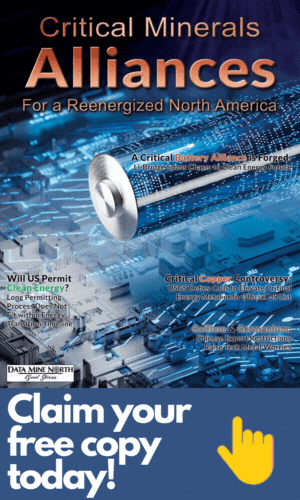Mining industry invests in communities
Companies advance in emerging field of sustainable development by tackling tough issues such as public health, environment
Last updated 6/28/2009 at Noon
Few can argue that the business of mining and mineral development has evolved dramatically in recent years. Engineering standards. Environmental safeguards. Regulatory oversight. Operational efficiencies. Health and safety performance. Even community development. Each of these critically important dimensions of planning and operating a modern, socially responsible mine has advanced light years since the term 'sustainable development' entered the public lexicon in the early 1990s.
But for all that, mining is still viewed by many as a dark and dirty industry. Perhaps it's understandable. The core business of mining - extracting large volumes of rock from far beneath the earth's surface to process the metal commodities that feed global manufacturing - is an inherently 'industrial' activity.
But there's another reality about modern mining that's available to anyone with a laptop, an internet connection and an open mind. When it comes to Corporate Social Responsibility and the emerging field of Sustainable Development, the global mining industry today is in the vanguard - regularly partnering with governments, communities and NGOs to tackle difficult issues like public health, community development and the environment.
There's certainly no shortage of international CSR-SD awards to demonstrate our industry's leadership in this realm (see Google). But to truly understand the scope and impact of the sustainability initiatives mining companies are pioneering around the world, you really have to get on the ground.
By way of example:
In South Africa, where HIV-AIDS affects 44 percent of the population, Rio Tinto is funding a program that provides care to 150,000 people suffering from this and other communicable diseases. BHP Billiton and 12 other mining companies are underwriting trials of advanced HIV therapeutic vaccines. And Northern Dynasty partner Anglo American manages one of the world's largest workplace HIV-AIDS programs.
In Brazil's Atlantic rainforest region, Anglo American has committed $92 million to conserve and restore native vegetation ravaged by logging, agriculture, human settlement and other land uses, and to support local community development.
And in Ghana, Newmont Mining invested some $36 million last year alone in public infrastructure and community development initiatives.
Northern Dynasty is doing its part too, through the Alaska-based Pebble Partnership. Last year, the Pebble Partnership initiated the Pebble Fund - a five-year, $5 million commitment to invest in sustainable development initiatives in southwest Alaska.
Just this spring, the Pebble Fund awarded its first $1 million in grants to 33 non-profit organizations advancing programs related to fisheries, energy, education and community development.
We are very proud to be involved in an initiative that may be the most significant pre-development community investment in the history of mining.
It's true, of course, that mining companies support community development and other sustainability initiatives because such investments are required to build local partnerships and earn the social license we need to operate. It's not entirely altruistic, but that doesn't diminish the very significant benefits that accrue to local people through responsible mineral development.
The programs referenced above, and hundreds more like them, will improve quality of life and environment and opportunity for local and indigenous people forever. Those still struggling with the modern usage of 'sustainable development' and how developing a finite resource can be considered 'sustainable' should take note.











Reader Comments(0)